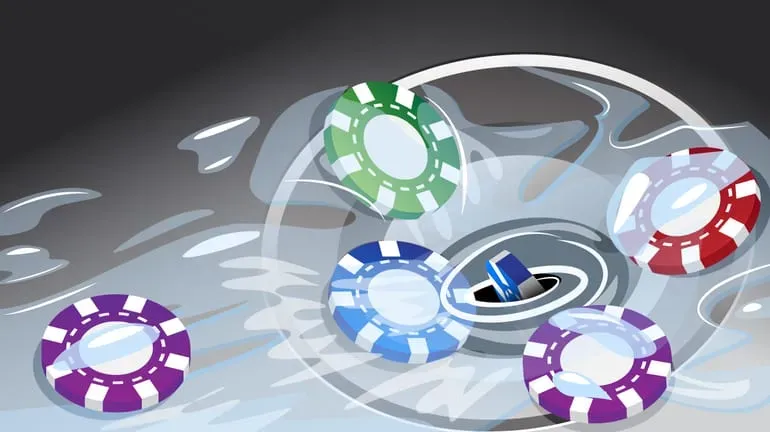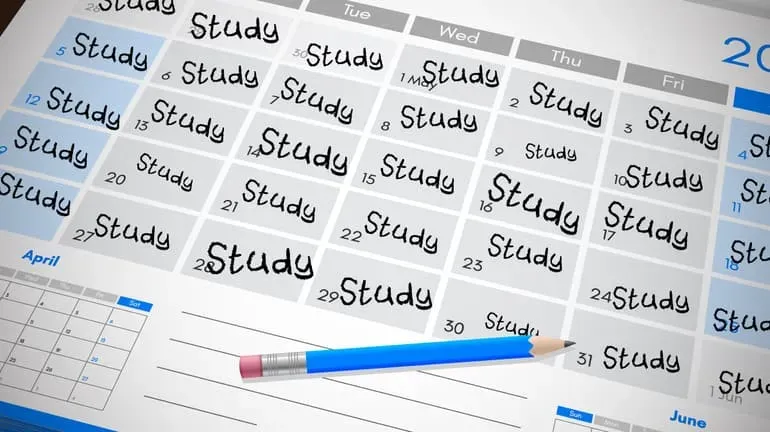You’re a good poker player. You may even have a profitable rate of return after many hours and many sessions of play. Even so, you’re not necessarily playing up to your potential. So, you’re looking to see if there are any things you can do to improve your game.
The answer is almost surely, yes. Even if you are the best player in your regular game, you can almost certainly find ways to do better against your opponents. Similarly, if you’re beating one game, undoubtedly there are things you can do to win more by defeating the better players in bigger games.
Here are FOUR good ways to improve your game:
- Find and Plug Your Leaks
- Do a Better Job of Game Selection
- Enter More Hands
- Study and Study Some More!

1. Find and Plug Your Leaks
We all have leaks – both in and out of the game. Some of us are sports bettors, or craps shooters, or inveterate horse players. These are, for nearly everyone, losing propositions that will siphon off any profit from poker and send it right down the chute, torpedoing any chance we have of emerging from the casino with a profit. Similarly, many of us have leaks right in our poker game.
Here’s a list of three. See if any apply to you and your game.
- Lack of discipline pre-flop. You see potential value in just about any two cards, especially if the pot has not been raised when it gets to you. For $2, you view just about any hand as having sufficient pot odds for a wager. What you fail to do is consider the likelihood that the hand will be raised after you call. Similarly, you don’t usually get away from the hand for another $8 or even $10 – costing you $10 or $12 on your sub-premium starting hand.
- Difficulty getting away from hands. You “know you’re beat” but you call anyway since you can’t stand the idea that someone may be bluffing you. Or you rationalise a call on the grounds that you were “pot committed”, or just floating an opponent whom you would steal the hand from on the next round. Only these are just excuses for your difficulty in folding a hand you’ve fallen in love with.
- Making desperate bets on the river. You know that your bluffs have to tell a story. And you know you need to be selective when you bluff. Still, when your stack is short, and you started the hand aggressively, you sometimes find yourself shoving with your remaining few bucks, in a desperate attempt to win or reload.
2. Do a Better Job of Game Selection

All games are not created equal. There is a tendency to be lazy and thoughtless in picking a game. Typically, you take the first seat that is offered to you, rather than looking around and trying to figure out the best table.
Similarly, rather than regularly scoping out the games to see which table is most profitable, once you’re seated, you tend to stay. Many players don’t take sufficient advantage of their ability to move seats and tables. And yet the profitability of a table has a massive impact on a player’s bottom line.
Play with eight grinders for ten hours; compare your results against playing with four grinders and four mediocre, clueless, or inebriated opponents. Most likely, there would be a massive difference in your results, even if you played with the same skill level in each game. Realise that your profit is the difference between your skill and the average skill of your opponents.
Yes, you can increase your profit by improving your level of play. And we should all be working on that. But by far, the easier road to travel is one of finding opponents who are not as good.
It’s worth a walk-around the poker room every hour or so to scope out the other games. If you’re not doing that, as a matter of routine, you are letting others profit off of the weak players who should be your lunch.
3. Enter More Hands
One of the areas for growth is in learning to play well those hands that are not the strongest ones to start. Can you turn KcTc in middle position into a profitable one for you against certain opponents? How about 7c6d in late position against a lone, bad opponent?
As you develop your game, you should be better able to understand how to exploit specific opponents, at times almost regardless of the cards you hold – as you’ll be able to knock them off their hand with just your betting. You need to keep track of your results, however, if you’re to see whether this track is an improvement for you.
It is the one way of improving your game that carries with it some considerable risk – so be careful!
4. Study and Study Some More!

Opportunities for learning have never been more numerous. There are dozens of poker books, hundreds of articles, scores of online video sites, and many discussion groups all just waiting for you to dive in. There’s a lot of information. How do you separate the wheat from the chaff?
Discussion groups are a place to start. See if there’s any consensus about the good writers, players, thinkers, and teachers. You should find some folks that everyone agrees seem to have helped their game. Go there. Use their recommendations to take you to others.
As you learn, you’ll see what works for you. Some coaches, virtual and otherwise, may work for some people but not you. Same with writers. Keep track of your results and discard what doesn’t seem to help you succeed.
In Summary
It’s easy to say you want to improve. But unless you take concrete action, you will almost surely plateau below your full potential. Playing a lot of hours is no substitute for truly working on your game.
So, come up with a plan for improvement – and follow it!


